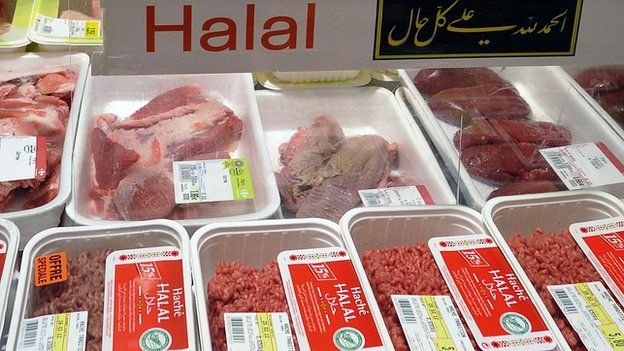LifeWithBlockchain: Fighting halal meat fraud with blockchain technology
Do you remember the horse meat scandal 2013 in Europe? Long story short: processed beef was up to 100% horse meat. Needless to say, that this is serious fraud and people got convicted of that.
This huge scandal, covered widely by the media, revealed the problematic of end-to-end tracking in food supply chains. Even if action was taken after that scandal to improve this issue, we are still far from perfection. This gets obvious by constant reports and articles about halal (Arabic for “allowed by islamic law”) food - which actually is not halal.
Even more than comparable food fraud incidents, this topic is highly emotional, as strong religious feelings are grossly negligent hurt.
What is the pain point?
If one buys halal Food is declared as such. But there is no centralized authority, which trustworthily covers and oversees all steps of the supply chain of respective food producers.
Therefore, different smaller companies offer specialized authentication services for these products. However, to maximize profits, many smaller food producers declare their products on their own as halal. This self-declaration offers actually no protection at all, it is purely based on the trust the consumer places in the seller.
Often motivated by economic reasons, the necessary standard for halal food production is too often neglected on different levels in the supply chain. The main ways this fraud happens are:
1.) the use of meat which is not suitable to meet halal standards
2.) the incorrect processing of meat originally suitable to meet halal standards.
Another reason leading to this fraud is purely the lack of knowledge of often non-Muslim producers about requirements of halal food production. Due to the increasing demand in countries such as the UK or France, more and more companies enter this specific market, often with lacking knowledge about the correct processing.
How could these Pain Points be reduced or eliminated in a blockchain-world?
By the usage of smart contracts, traceability and transparency could be enforced for the particular halal food supply chain. The data implemented by each participant is provided for verification to the miners. This could be the other participants of the respective supply chain as they are also interested in maintaining the integrity. Does a majority agree on the correctness, a consensus is found and the data as a block is added to the blockchain. Eventually, the data is stored in an unchangeable way and each one of the participants has his own copy of the data.
The thereby increased transparency and traceability discourages future fraud, as it shifts the spotlight on the single contributor. It also lines out unintentional disregard of halal requirements in following production steps such as packaging and storage.
After all, the blockchain solution is not a panacea. But it is a promising starting point to shrink the risk of non-halal meat declared as halal to a minimum.
Let me know your thoughts! Just a matter of time? Or simply not going to happen for different reasons?
Thank you for your time!
#LifeWithBlockchain
Thanks to Pascal Mehrwald (@pascalmehrwald), Benjamin Pabst von Ohain (@benpvo), Prof. Dr. Isabell M. Welpe and the TUM seminar participants.
